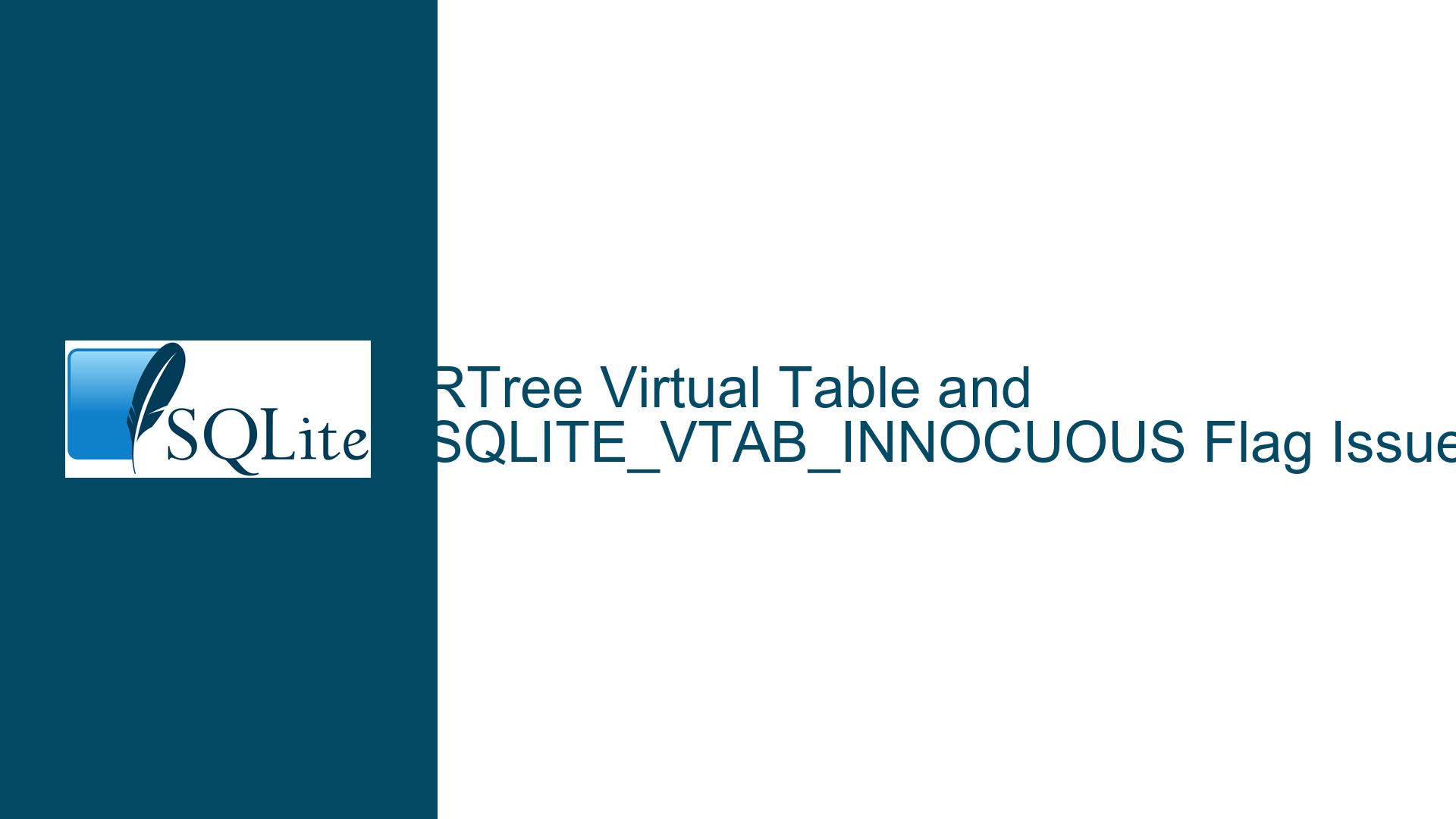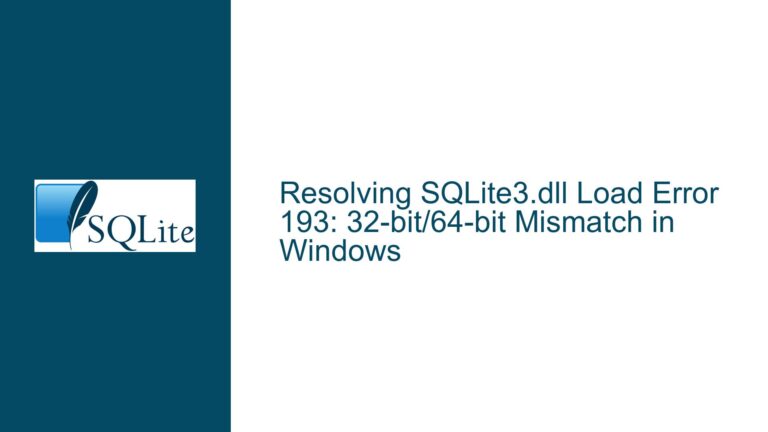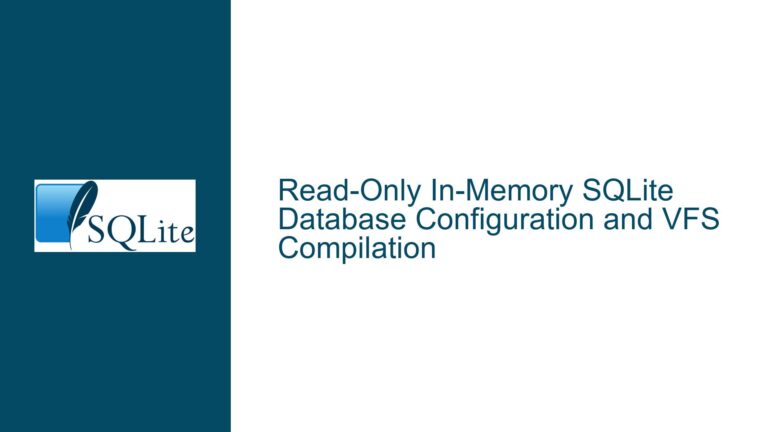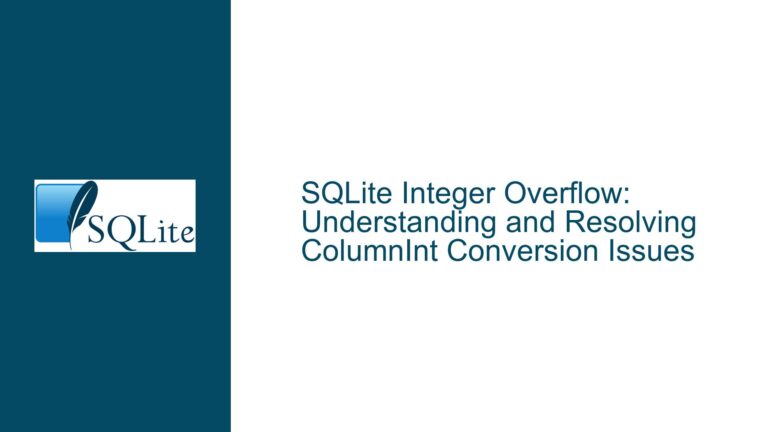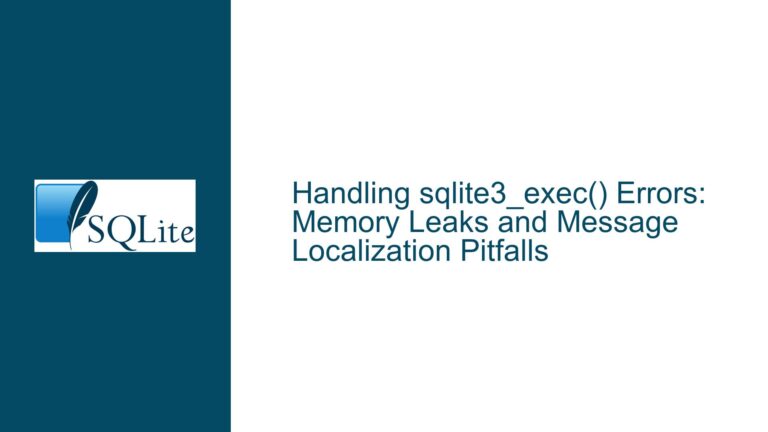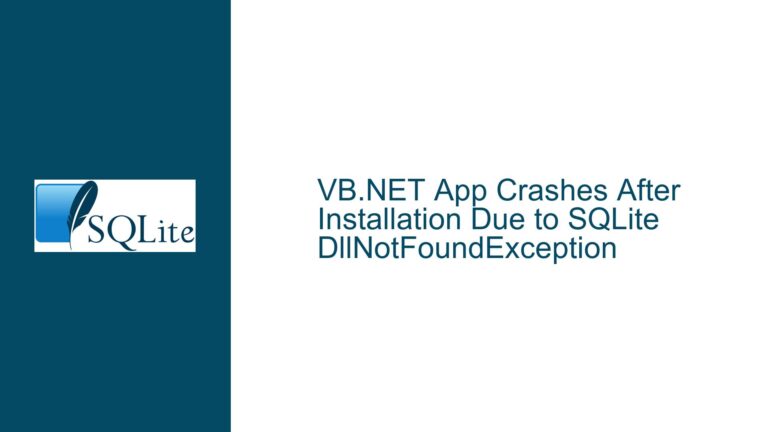RTree Virtual Table and SQLITE_VTAB_INNOCUOUS Flag Issue
RTree Virtual Table’s Inability to Operate in Triggers with trusted_schema=OFF
The RTree virtual table in SQLite is a powerful extension designed to handle spatial data efficiently. However, a significant limitation arises when the RTree virtual table is used in conjunction with triggers, particularly when the PRAGMA trusted_schema is set to OFF. This limitation stems from the RTree virtual table not being declared with the SQLITE_VTAB_INNOCUOUS flag. The absence of this flag prevents the RTree virtual table from being used in triggers, which are often essential for maintaining the integrity and synchronization of spatial data with other related tables.
The SQLITE_VTAB_INNOCUOUS flag is a security feature introduced in SQLite to mitigate potential risks associated with virtual tables. When a virtual table is marked as SQLITE_VTAB_INNOCUOUS, it is considered safe to use in contexts where the schema is untrusted, such as in triggers or views. The flag essentially signals that the virtual table does not pose a security risk, even if controlled by a malicious actor. The RTree virtual table, however, lacks this flag, which restricts its use in triggers when trusted_schema is OFF.
This limitation has far-reaching implications, especially for applications that rely heavily on spatial data management, such as Geographic Information Systems (GIS). In these systems, triggers are often employed to ensure that the RTree index remains synchronized with the underlying spatial data. Without the ability to use the RTree virtual table in triggers, maintaining data consistency becomes a significant challenge, rendering the RTree extension less effective in scenarios where trusted_schema is OFF.
The Security Implications of Declaring RTree as SQLITE_VTAB_INNOCUOUS
The decision to declare a virtual table as SQLITE_VTAB_INNOCUOUS is not taken lightly. The flag is intended to be used sparingly, and developers are cautioned against setting it unless absolutely necessary. This caution stems from the difficulty in proving that a virtual table is truly innocuous. A virtual table that is incorrectly marked as SQLITE_VTAB_INNOCUOUS could potentially be exploited by a malicious actor to cause harm, such as by executing arbitrary code or accessing sensitive data.
In the case of the RTree virtual table, the argument for marking it as SQLITE_VTAB_INNOCUOUS is based on the assumption that it does not pose a security threat. The RTree extension is primarily concerned with spatial indexing and does not perform operations that could be considered harmful, such as modifying the database schema or accessing external resources. However, proving that the RTree virtual table is entirely innocuous requires a thorough analysis of its implementation and behavior in various contexts.
One of the challenges in declaring the RTree virtual table as SQLITE_VTAB_INNOCUOUS is ensuring that it does not inadvertently expose vulnerabilities. For example, if the RTree virtual table were to interact with other components of SQLite in a way that could be exploited, marking it as SQLITE_VTAB_INNOCUOUS could introduce security risks. Therefore, any decision to add the SQLITE_VTAB_INNOCUOUS flag to the RTree virtual table must be accompanied by a rigorous security review to ensure that it does not compromise the overall security of the database.
Steps to Enable RTree Virtual Table in Triggers with trusted_schema=OFF
To address the limitation of the RTree virtual table in triggers when trusted_schema is OFF, several steps can be taken. The most straightforward solution is to modify the RTree virtual table to include the SQLITE_VTAB_INNOCUOUS flag. This modification would allow the RTree virtual table to be used in triggers, even when trusted_schema is OFF, thereby enabling the synchronization of spatial data with other tables.
The process of adding the SQLITE_VTAB_INNOCUOUS flag to the RTree virtual table involves several steps. First, the source code of the RTree extension must be modified to include the flag. This modification requires a deep understanding of the RTree implementation and its interaction with the SQLite core. Once the flag is added, the modified RTree extension must be thoroughly tested to ensure that it behaves as expected and does not introduce any security vulnerabilities.
In addition to modifying the RTree extension, it is also important to consider the broader implications of enabling the SQLITE_VTAB_INNOCUOUS flag. For example, database administrators should be aware of the potential risks associated with using virtual tables in untrusted schemas and take appropriate precautions to mitigate these risks. This may include restricting access to certain database operations or implementing additional security measures to protect against potential exploits.
Another approach to enabling the RTree virtual table in triggers is to use a custom virtual table implementation that includes the SQLITE_VTAB_INNOCUOUS flag. This approach allows for greater flexibility in managing spatial data and can be tailored to the specific needs of the application. However, developing a custom virtual table implementation requires a significant investment of time and resources, and may not be feasible for all applications.
In conclusion, the inability of the RTree virtual table to operate in triggers when trusted_schema is OFF is a significant limitation that can impact the effectiveness of spatial data management in SQLite. By understanding the security implications of the SQLITE_VTAB_INNOCUOUS flag and taking appropriate steps to enable its use in triggers, developers can overcome this limitation and ensure the integrity and synchronization of spatial data in their applications.
